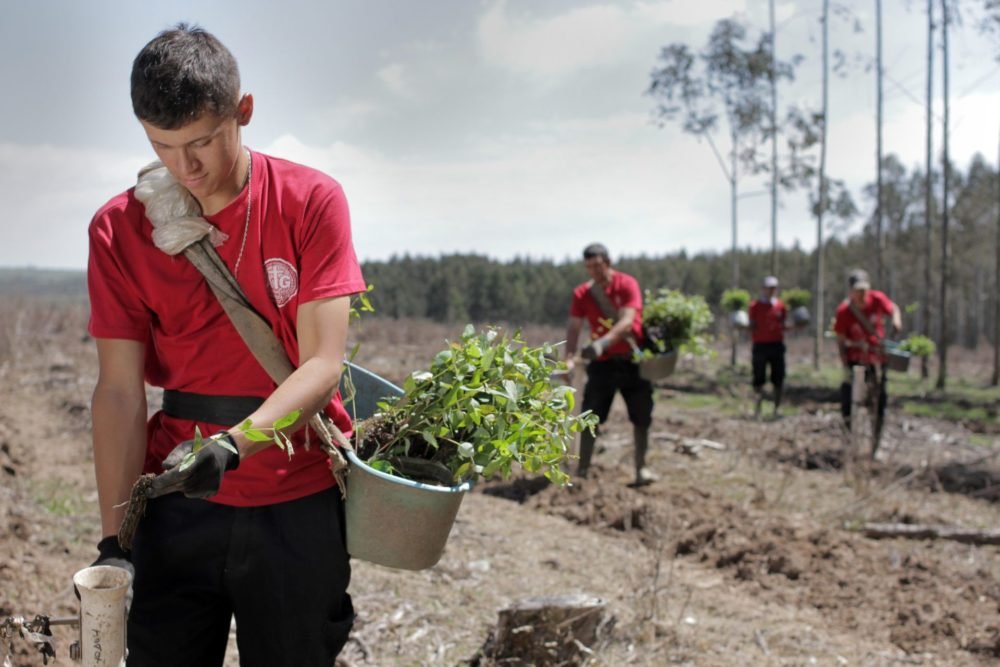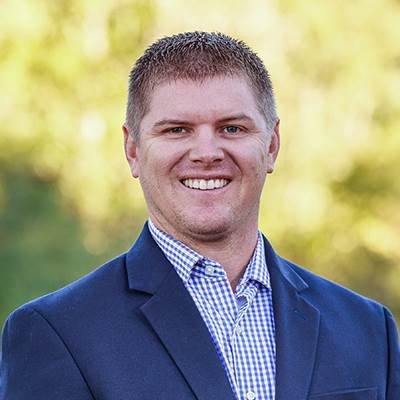Restoring forests is widely seen as key to removing carbon from the atmosphere and keeping global warming below 1.5 °C to avoid climate disaster. The International Union for Conservation of Nature estimates that halting deforestation and promoting forest restoration could contribute to over one-third of all climate change mitigation needed by 2030.
However, the systems for measuring forest carbon capture are fractured and lacking in standardization and transparency. As a recent report from McKinsey noted, carbon markets overall are “characterized by low liquidity, scarce financing, inadequate risk-management services, and limited data availability.”
These are among the issues US-based Pachama hopes to tackle.
Its monitoring software uses satellite imagery and remote sensing to measure the carbon stored in forests over time and detect changes in the environment, such as illegal deforestation. The goal is to independently verify the impact of reforestation projects then share those insights with both offsetters and project developers. The company has worked in 14 countries so far and counts Microsoft, Netflix, Salesforce, and Softbank as clients.
Investors are taking note, too. Pachama recently raised $55 million for its Series B round, led by VC Future Positive.
“If we can have functioning forest carbon markets at scale, that is going to be key to decarbonization. There’s an opportunity for Pachama to help create a standard and provide real-time accountability,” Future Positive co-founder Fred Blackford told AFN.
Josh Parrish, Pachama’s vice president of carbon origination, suggests the opportunity lies in using tech to address three specific challenges: quality, efficiency, and transparency.
Below, Parrish (JP) discusses those challenges with AFN and explains how tech can play a vital role in improving forest carbon markets.
AFN: What are the big problems in forest carbon markets that Pachama is trying to solve?
JP: Pachama’s mission is to use technology, including remote sensing and machine learning and automation, to solve the climate crisis and protect and restore nature. For me, it really breaks down to three pieces we’re trying to improve: quality, efficiency and transparency. We need all of those together in order really to be impactful and solve the climate crisis.
AFN: How can your tech improve the quality of forest carbon markets?
JP: One of the issues right now with quality is this lack of updated technology and using real-time remote sensing to verify and validate the projects. There’s no standardization, so there can be a lot of unintended biases and different projects with different accounting.
Our goal is to use technology to remove that bias and create carbon accounting and standards that provide the highest quality possible. We’re leveraging remote sensing, ground-base plots, and LiDAR to create year-over-year carbon measurements and carbon benefits on projects. The core here is the frequency of the updates, so our technology can frequently measure and render what the carbon benefits are.
Then, if you think about the scale, we’re able to measure states, or entire countries, of carbon over time versus just small singular plots [which are] a tiny fraction of the whole forest or a whole project.
AFN: What about efficiency and transparency?
JP: It’s basically projected that by 2030, the markets are going to be need to be at least 10 times [more efficient than] what they are today. And there’s labor shortages right now, there’s all kinds of difficulties getting even current projects to market and to scale.
Our goal with efficiency is leveraging the technology to cut [projects] down to an 18 to 24 month timeframe, to get a project from start to actually issuing credits and then revenue, going back to communities and landowners, and doing restoration. Cutting all that drastically down into months, not years, is essentially the goal.
We feel more transparency is needed to build trust across the board with these projects. And that is trust with the landowners, because they want to understand that they’re getting compensated fairly for the benefits they’re providing to society. And then also trust from the from investors and from the demand side as well: trust that what they’re investing in are truly climate benefits, and having the impact they want to see.
The last piece of transparency is the actual impact. And that’s what we’re really excited about with this technology because we can report on the changes and the projects and the communities in ways that in the past you just haven’t been able to do.

AFN: How do your relationships with the landowners come about?
JP: [Those relationships are] one of the key components of projects that actually make a difference, both for nature and for climate, and for people.
We look to work with local partners. A lot of partners out there obviously don’t have the technology expertise and background Pachama has, but they have great on-the-ground and local community experience.
[We work with them] to restore lands that are degraded. Partners work with local landowners, they may be landowners themselves, or part of those networks. We handle the carbon side: the verification, the technology, the investments. Partners are really the boots on the ground that know the lands and are a part of local communities, which we think is extremely important as we work across the globe to be very local.
AFN: You’re focusing right now on Brazil, Mexico, and the US. Are there any other regions that you expect to move in to?
JP: We’re not exclusive just to the Americas, but we have to start somewhere. The vision is to to start in [and] grow throughout the Americas where forest protection and restoration is needed, and then grow then into Sub-Saharan Africa and Asia.
It’s a global vision through 2030. The beauty of the technology is it can be replicated and brought out globally.
AFN: What specific benefits will the recent Series B funding bring?
JP: The funding gives us the fuel we need to [grow] our team, invest in technology, and then to invest in partnerships and projects. It really sets us up from proof-of-concept through scaling.
At a high level, the time is now to have a system that works – for nature and for people. That’s really why we’re so excited about this opportunity to work with leading corporations, with great local organizations and landowners, and restoration partners.











